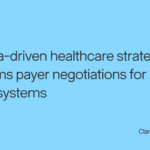Clinical trial diversity is crucial as factors like age, ethnicity, race, and sex can significantly impact how people respond to medicines and vaccines. However, some communities have historically been underrepresented in clinical research due to barriers like a lack of access, awareness, and trust in drug development processes. Pharma companies have accelerated to address diversity, ethnicity, and inclusion (DE&I) in their clinical trials. But are they doing enough to make a significant impact and accurately reflect the diverse patient population? Importance of diversity in clinical trials and barriers Ensuring racially and ethnically diverse participants is critical to the success of clinical trials. Deloitte research recently discovered it delivers three key advantages: Safety and effectiveness: Clinical trial participants must reflect the patient population likely to use a new drug. This is vital to ensuring the new medicine is effective and safe for patients. Despite these advantages, barriers like access, awareness, and a lack of trust still hold clinical trial diversity back. Deloitte’s research found areas of opportunity that pharma companies need to address: Trusted community messengers: Reliable information from community members they trust helps people make decisions about whether to take part in clinical trials. Community leaders, such as educators, faith-based leaders, health workers, and healthcare providers, can be crucial to delivering the health information people need. In April 2022, the U.S. Food & Drug Administration (FDA) expanded its guidance on boosting clinical trial diversity. It explained that, as the population becomes more diverse, it’s “fundamental to public health” for clinical trials to represent racial and ethnic minorities. It emphasized that biological differences can affect how people respond to therapies, potentially making treatments more or less toxic to different racial or ethnic groups. The FDA also advised that diversity was crucial for developing better treatments and fighting diseases that often significantly impact diverse communities. Pharma companies’ commitment to diversity Pharma companies, such as Pfizer and Merck, are increasingly committed to increasing diversity in their clinical trials. Pfizer has committed to making clinical research more inclusive and developing more trusted relationships in diverse communities. It’s also designing clinical trials to ensure enrollment reflects the racial and ethnic diversity of countries they take place in and the epidemiology of diseases it treats and prevents. The company is also aiming to address clinical trial participation barriers by: Embedding clinical trial diversity in its corporate culture. Merck has committed to advancing knowledge about treatment safety and efficacy for all people by ensuring diverse populations participate in clinical trials. It aims to enroll various people in trials worldwide, especially in the U.S., by improving everything from trial design to recruitment. It’s outlined a series of steps to ensure it achieves these goals: Inclusion is central to trial site locations by evaluating epidemiology, diversity data, and census information. Collaboration is critical in helping pharma companies enhance diversity in clinical trials. By building sustainable partnerships with people and groups across the ecosystem, from community members and academia to patient groups and federal and state agencies. In this manner, pharma can strengthen its profiles in underrepresented communities and establish a sustainable trial infrastructure. For example, the Deloitte research discovered one vital collaboration tactic was enhanced data collection capabilities, which can improve the collection and sharing of real-world racial and ethnic data. It also advised developing resources that help patients identify and enroll in clinical trials. Addressing clinical trial diversity As populations become more diverse, pharma must ensure their clinical trials accurately reflect the population. Increasing diversity can help organizations to develop new drugs and treatments that are safe and effective for everyone. Our recommendations to pharma companies wanting to accelerate DE&I in clinical trials are: Build solid relationships with community leaders that are vital to increasing trust with patients. Learn more about Clarify Trials to enhance DE&I in your companies’ clinical trials.
Disease understanding: This diversity also helps to boost knowledge of diseases, which is vital to improving prevention and treatment, especially in specific racially or ethnically diverse communities.
Health equity: Ensuring that diverse patients participate in trials helps boost their health equity, enabling them to access quality health care and lifesaving therapies. These trials are often the primary route for patients to receive unapproved or investigational medicine.
Improved communication: Pharma must ensure their material is culturally sensitive and considers unconscious or unintended bias.
Patient-centric approach: Seeking patient input throughout drug development processes can be critical to the success of pharma.
Current FDA guidance
Locating trial sites in diverse communities.
Raising awareness of diversity issues by working with patient advocacy groups.
Making it easier for people to find information about trials by publishing it in multiple languages.
Using digital tools to make trial design and participation more flexible.
Partnering with community groups in trial site areas to improve trust and diverse participation.
Training employees to provide outreach to diverse communicates and inform specific patient populations.
New enrollment standards will help clinical teams track engagement and enrollment in minority communities.
Teams regularly discuss success areas and process improvement to improve patient diversity.
Collaboration is the answer
Learn from pharma industry leaders like Pfizer and Merck, who offer best practices on how to commit to diversity.
Ensure collaboration amongst various stakeholders, which is critical to improving clinical trial diversity.
- Author Details





